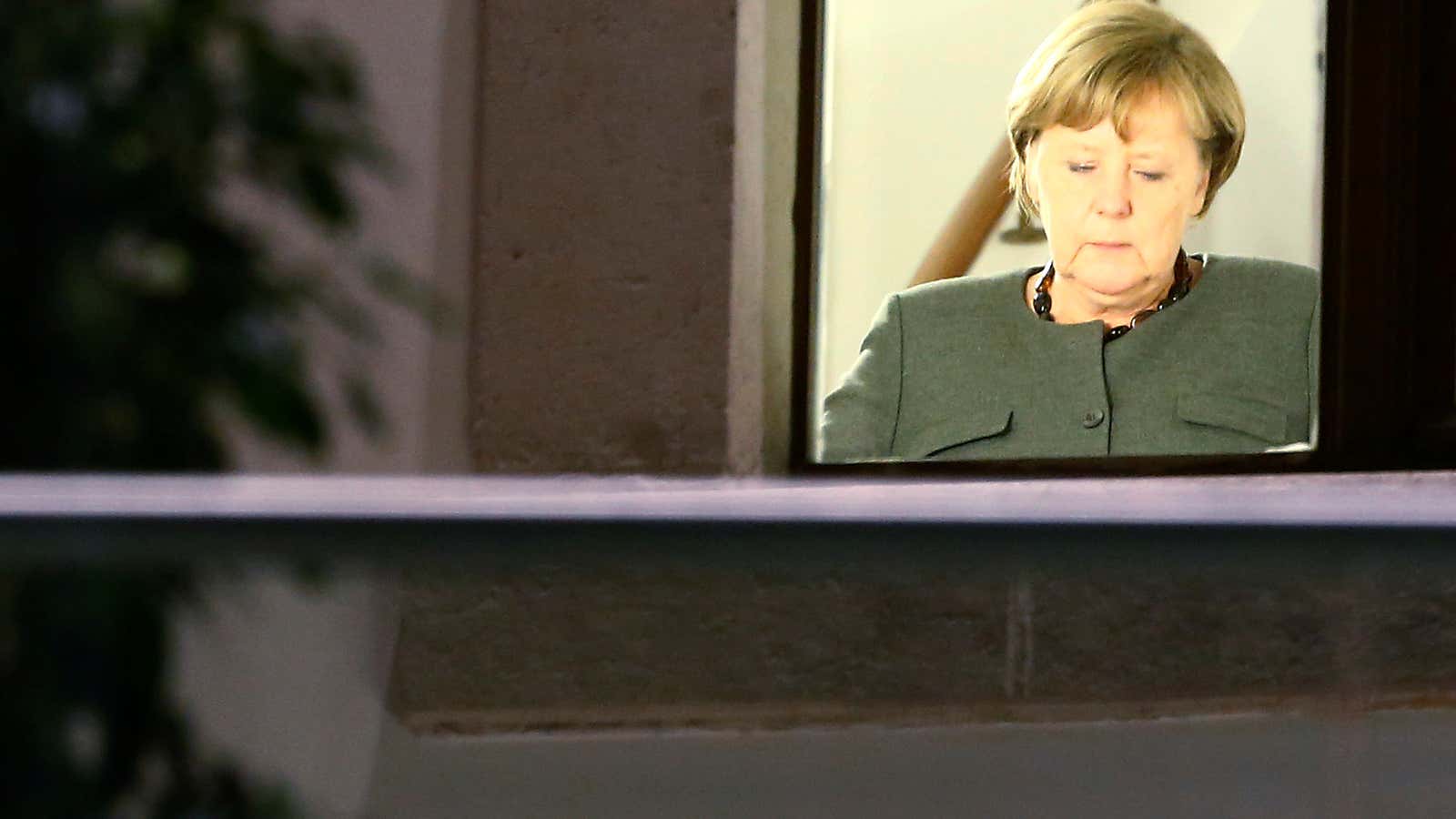The German chancellor left a government building in Berlin on Friday morning at 4am (local time), after a 15-hour negotiation session with her potential coalition partners. She was back in front of reporters at the Christian Democratic Union headquarters before 11am, explaining that “it’s definitely going to be hard” to try and form a government—but that she believes it’s worth it.
That has been Merkel’s message since her party’s disappointing performance in September’s general election left it with the sole option of a three-way tie-up with the Greens and the Free Democrats. It wasn’t an ideal situation for the chancellor entering her fourth term.
Now the parties have missed the self-imposed deadline of Nov. 16 to agree to proceed to formal coalition talks (this is still the pre-coalition negotiation) and everyone has cleared their diaries for a weekend of hard haggling.
Merkel has a reputation as a skilled negotiator, who can keep going when everyone else is dropping from tiredness, but there’s a lot at stake this time. If they can’t find a way forward, Germany could face a snap election. None of parties want this, as it runs the risk of boosting the power of the right-wing Alternative for Germany, which won big in September.
What are the stumbling blocks?
Germany has never before had a “Jamaica” coalition—so called for how parties’ colors match the Jamaican flag—at a federal level before. Unsurprisingly, it’s a nightmare to try and hammer out an agreement between the left-leaning Green Party and the pro-business Free Democrats. Both sides are reluctant to make concessions that could vex their voters, and are miles apart on some key policy issues.
Refugee, climate, and fiscal policies are the main areas where they are at odds. To keep the Christian Social Union (the CDU sister party) happy after the election disappointment, Merkel agreed in principle to an annual cap on refugee numbers. But the Greens are opposed to a cap and also want to end the moratorium on refugees’ families joining them in Germany.
On climate, the FDP and the CDU said no the environmentalist Greens’ demand for an exit from coal-generated energy by 2030. The Greens in turn rejected Merkel’s compromise to cut coal-fired power production by 7 gigawatts by 2020.
The pro-business FDP will need to compromise on their election pledge to wind down the euro zone’s bailout fund and make big tax cuts. They also want to end the income-tax surcharge—the “solidarity tax”—the people have paid for over 25 years to rebuild former East Germany, which the Greens are against doing.
So far, the list of what they agree on is short, and includes keeping the country’s famous balanced budget, modernizing Germany’s internet infrastructure, and increasing family benefits.
